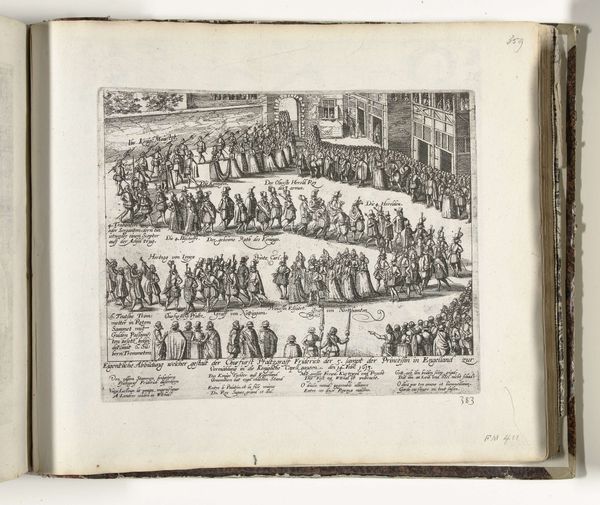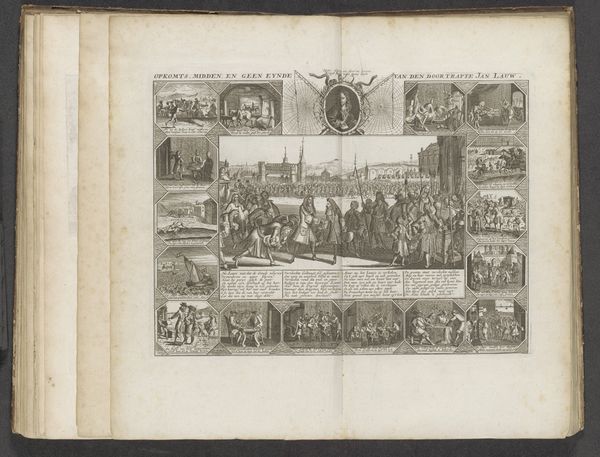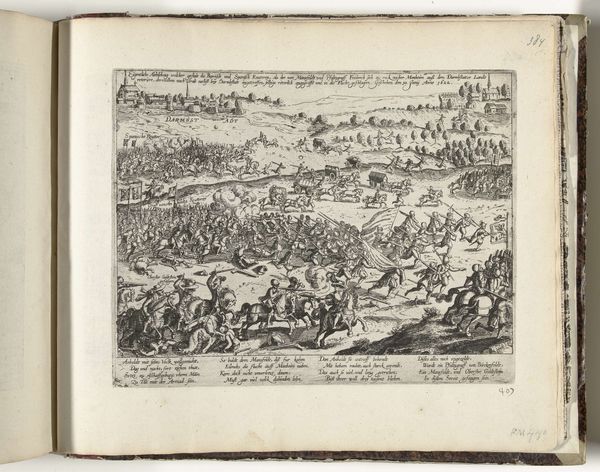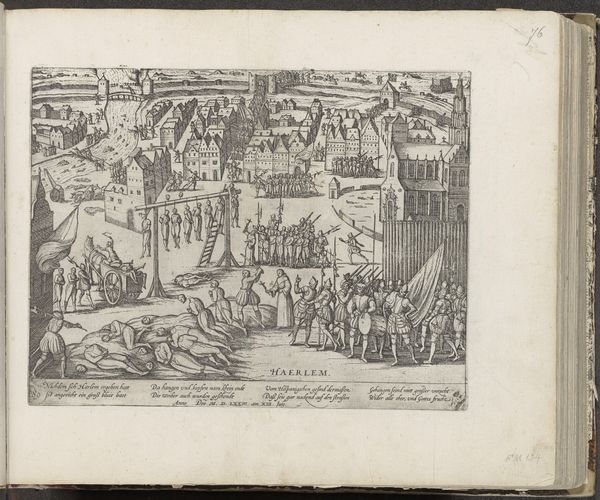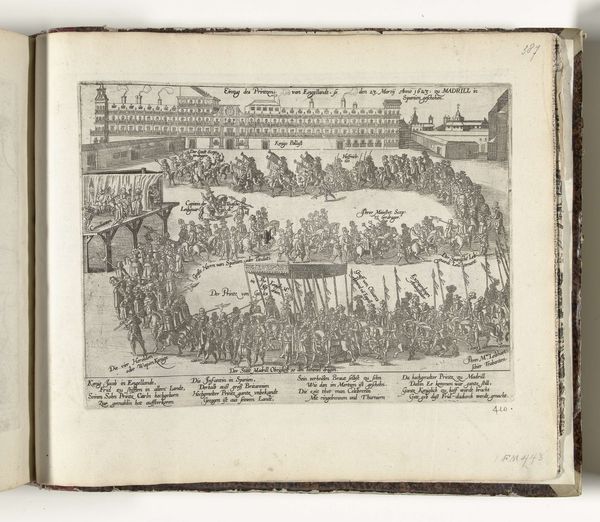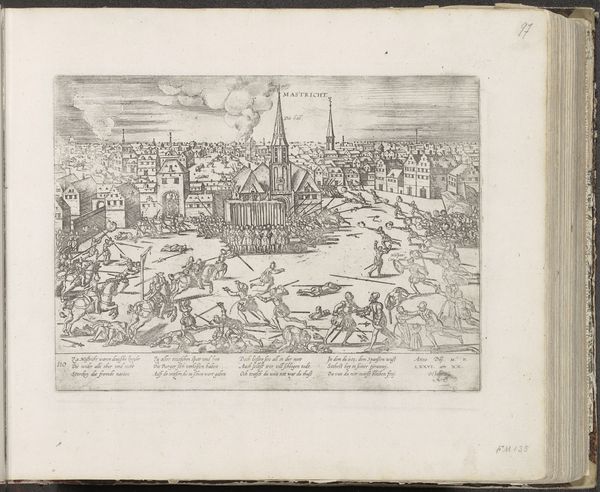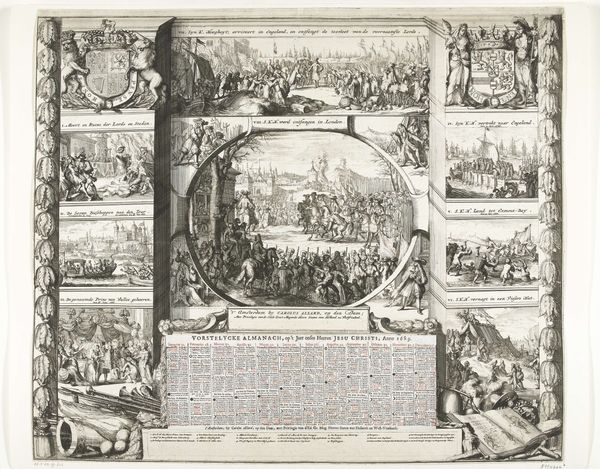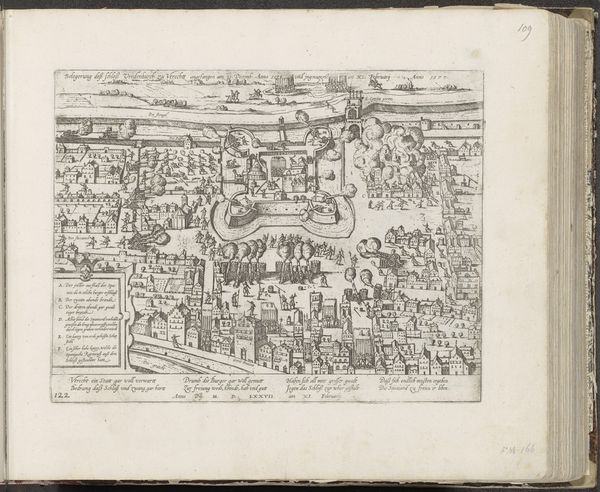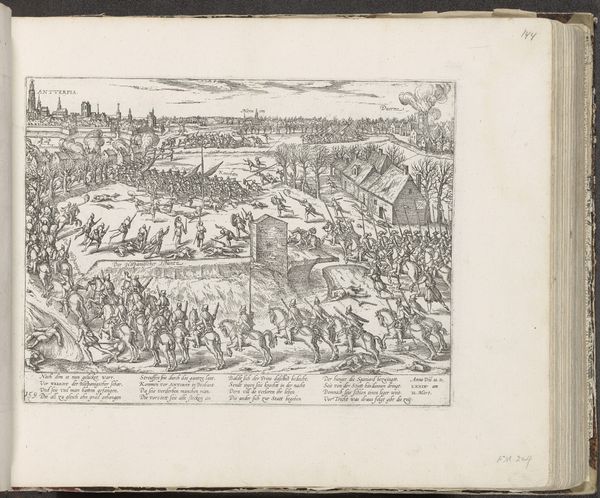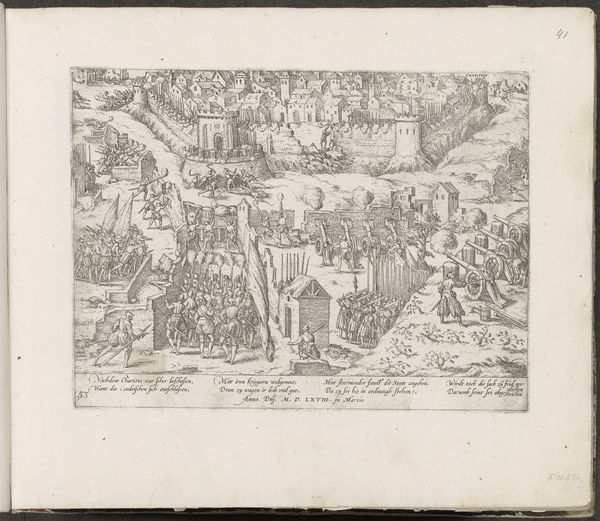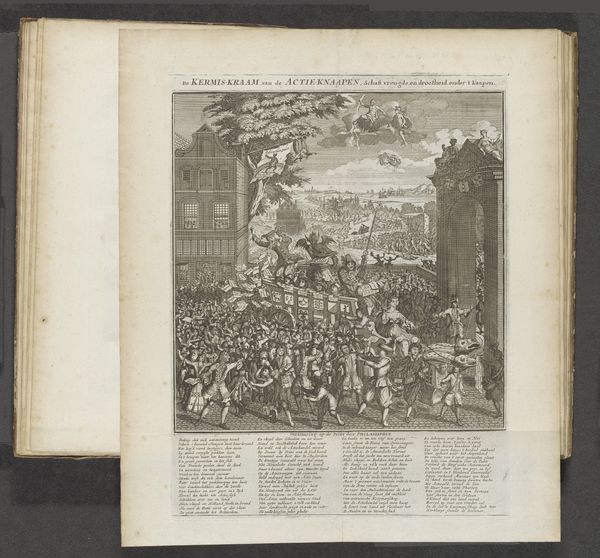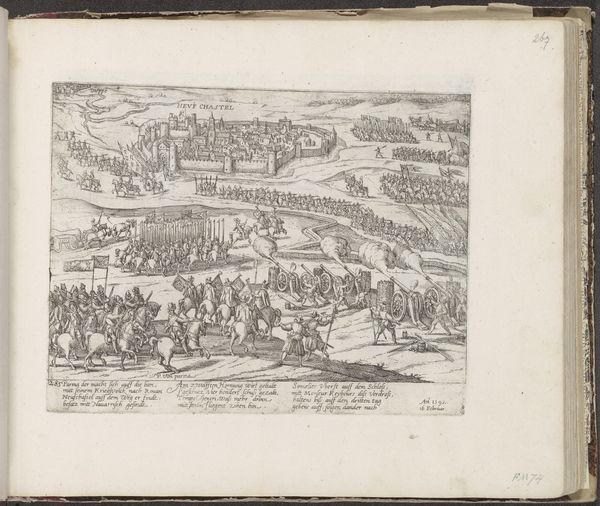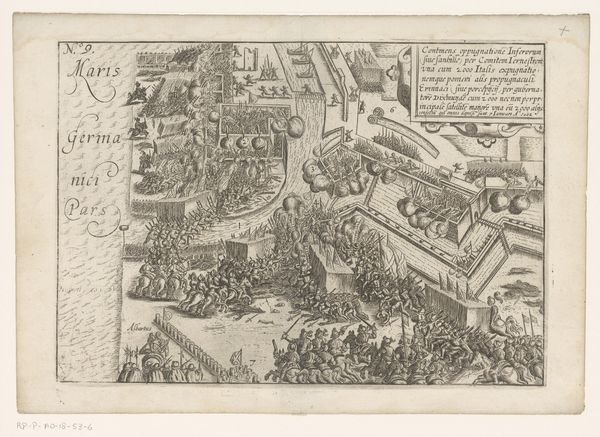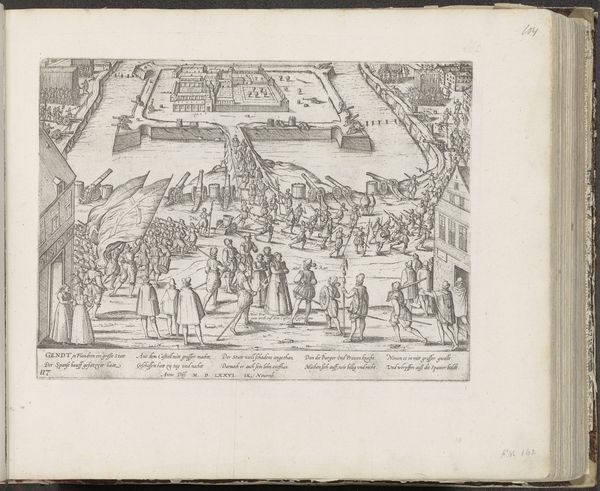
Huwelijk van paltsgraaf Wolfgang Wilhelm von Pfalz-Neuberg met Magdalena van Beieren, 1613 1613 - 1615
0:00
0:00
franshogenberg
Rijksmuseum
print, engraving
#
narrative-art
#
baroque
# print
#
cityscape
#
history-painting
#
engraving
Dimensions: height 251 mm, width 302 mm
Copyright: Rijks Museum: Open Domain
This print, made by Frans Hogenberg, commemorates the 1613 wedding of Count Palatine Wolfgang Wilhelm von Pfalz-Neuberg and Magdalena of Bavaria. It’s an engraving, a process where the artist incises an image into a metal plate, applies ink, and then transfers it to paper. Look closely, and you’ll see the dominance of line. Hogenberg used a burin, a specialized cutting tool, to create these precise, descriptive marks. The crispness of the lines allowed for detailed depiction of the wedding procession, capturing the opulence and grandeur of the event. Engraving was a crucial technology for disseminating information and propaganda in early modern Europe. Think about the labor involved: the careful planning, the steady hand required to guide the burin, and the physical effort of printing multiple impressions. This wasn't just art; it was a form of mass communication, shaping public perception of power and status. By understanding the print’s materiality and production, we gain a deeper appreciation for its role in shaping historical narratives. It blurs the lines between artistic expression and social commentary.
Comments
No comments
Be the first to comment and join the conversation on the ultimate creative platform.
